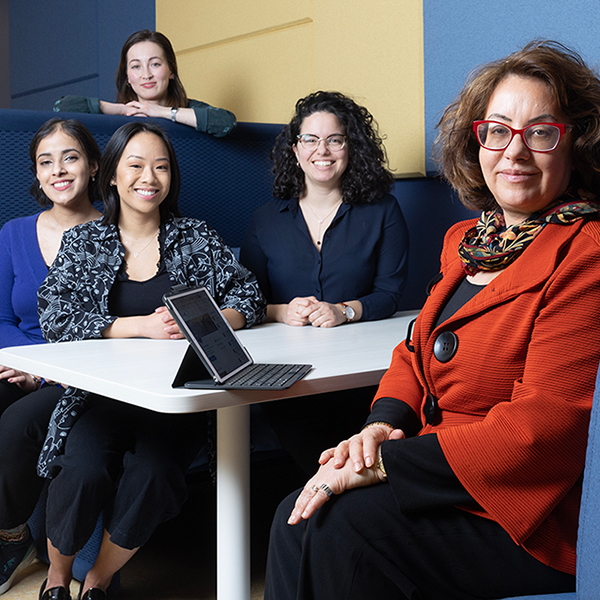The people who develop promising policy ideas often don’t know how to implement them. The people in charge of running governments are usually too busy to discover those promising policy ideas. McGill’s new Max Bell School of Public Policy aims to bridge that divide.
When Christopher Ragan and Christy Clark recently met to talk about McGill’s new school of public policy, they found themselves agreeing on a range of prospective policy issues – from compromising on pipelines to the necessity of revamping federalism. But the issue the economics professor and the former premier of British Columbia seemed to agree on most was the seemingly unbridgeable gap between their two worlds.
“I started my career with a standard academic notion,” says Ragan, an associate professor of economics who has taught at McGill for 30 years. “You come up with an idea, put it out in a paper, assume the world will discover it and know what to do with it. Then you move on to the next idea.”
Unfortunately, the people who have the power to act on those ideas rarely stumble upon them.
Those who are charged with governing “often don’t have the time, space or training to see outside their own silos, to look across old solutions and concoct new ones,” says Clark.
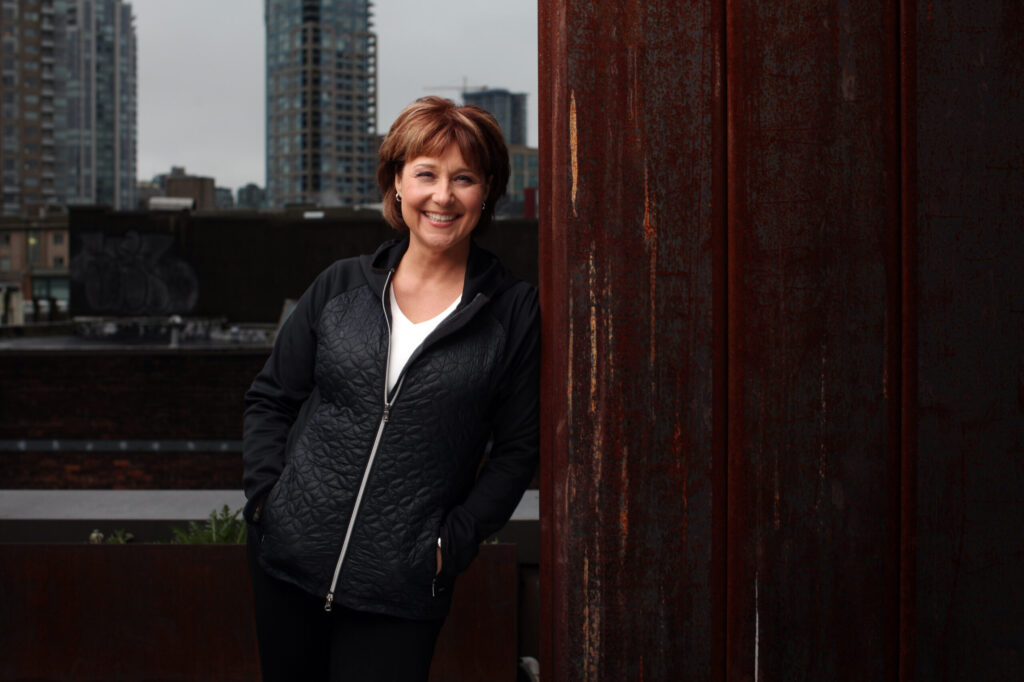
Enter the Max Bell School of Public Policy. Funded with a $10 million donation from the Calgary-based Max Bell Foundation, it is now in business to try to bridge the daunting gap between thinking about policy and making it.
Named director of the Max Bell School in the fall of 2017, Ragan was starting from scratch. “All we had was the gift from the Max Bell Foundation, a commitment from McGill and three co-chairs on an advisory board. We didn’t have a space, a faculty or a curriculum. What we had was a blank piece of paper.”
Ragan spent most of the two-year lead up to the School’s official fall launch filling in the blanks, starting with a newly designed curriculum for the School’s 11-month Master of Public Policy (MPP) Program. At the same time, Ragan focused on bringing together a “teaching team” from both sides of the policy divide.
In addition to the typical core courses you’d expect to find in similar schools and curriculums – say, Global Macroeconomics or Ethics, Rights and Law – Ragan introduced Policy Case Studies. These are intensive, week-long courses taught by seasoned practitioners like Brian Topp, BA’83, former Alberta premier Rachel Notley’s first chief of staff, and Louis Lévesque, former deputy minister of Transport Canada, who will be coming in to analyze, respectively, Alberta’s climate policy and the Lac Mégantic railway catastrophe.
From the start, the idea was to reach out to people capable of taking deep dives into real-world policy-making. “People who’ve been in the trenches,” Ragan says.
A real-world mindset
While he doesn’t downplay the importance of theory – he’s an academic, after all – Ragan understands that a mastery of theory isn’t enough for someone who hopes to see their policy ideas actually get implemented. For instance, the MPP program will conclude next summer with Policy Labs, which will have small groups of students working closely with a private, public or non-profit organization.
“We view the Max Bell MPP as a professional degree,” Ragan says. “Our students are going to be very much immersed in how real-world policy works. What makes this school different from other public policy schools is it’s going to be much more practical.”
It helps that Ragan has, on occasion, been on both sides of the policy divide, including an 18-month stint in government as a special advisor to the federal minister and deputy minister of finance. He was also once a special advisor to the governor of the Bank of Canada. “My three different times away from McGill were all spent in the wonderfully exotic city of Ottawa. Can you believe that?”
For Clark, it’s this kind of crossover experience – along with McGill’s reputation as “one of the best universities in the world” – that persuaded her to serve as one of the co-chairs on a 13-member advisory board that also includes former prime minister Paul Martin. “There just aren’t that many academics in the country – in fact, I don’t think there are any – who’ve been as engaged in practical public policy as Chris,” Clark says.
Another thing the career academic and career politician ended up agreeing on is that some gaps are bound to be harder to bridge than others. “One wants things to be perfect and one knows they can’t be,” Clark says. “Perfection is not possible in public policy.”
Neither is simplicity. “Pick any issue you want – assisted dying, cannabis legislation, budget deficits, carbon-pricing – any one,” says Ragan. “They’re all super complex. What we want to make sure we’re studying most of all at Max Bell is complexity.”
Contending with complexity
With that theme in mind, the Max Bell School introduced another innovation – the Complexity Seminar. It’s also a one-week course, taught by practitioners. But rather than focus on a single policy, it flips the script, examining the impact a single type of complexity has on a variety of policies. “These seminars are meant to build expertise in what makes all policies difficult to implement,” Ragan explains.
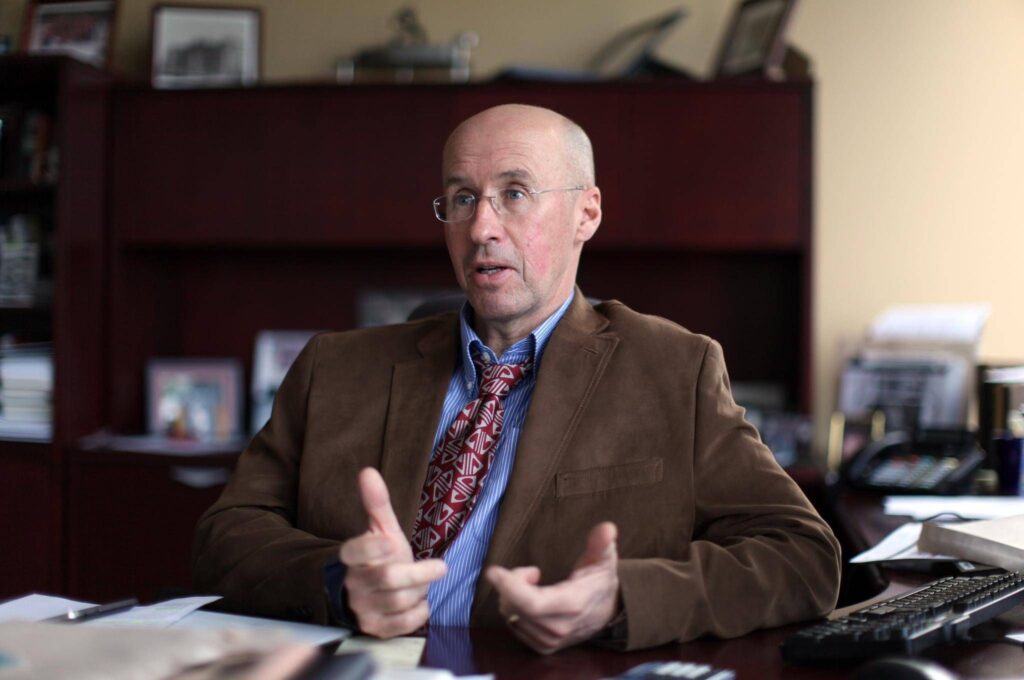
Kevin Page is slated to teach one of the eight complexity seminars offered in this year’s MPP program. His is on transparency, an issue he knows well, perhaps painfully well. In 2008, after almost three decades as a civil servant and an economic advisor to then prime minster Stephen Harper, Page was appointed Canada’s first parliamentary budget officer (PBO). His job, in essence, was to speak truth to government, particularly on issues of finance and spending.
This meant making information that usually got no further than the federal cabinet table readily and publicly available. In costing a war, for instance, the PBO was tasked with pricing everything from fighter planes to death and disability payments for veterans. In this and other matters, Page’s economic forecasts didn’t always match those put out by the government he was appointed by. Transparency suddenly got complicated.
Page, who left the PBO position in 2013, admits that when Ragan approached him about tackling transparency once more he hesitated. “I admit I found the idea incredibly challenging,” Page says. “Writing the syllabus, I had a headache 24/7.”
Still, he accepted the challenge, viewing it as a way to guide, perhaps even push, the next generation of public service leaders in Ottawa and elsewhere into facing the complexities that go hand-in-hand with lifting the curtain on policy-making. “A lot of academics would shy away from taking this kind of thing on,” Page says. “But at Max Bell the idea is go straight into the fire and see if you can put it out. Or at least understand it.”
Fortunately, not everything is complicated. The path from the Max Bell Foundation to the Max Bell School of Public Policy could hardly be more straightforward. It starts, of course, with the namesake of both institutions.
Max Bell graduated from McGill in 1932 with a degree in commerce and went on to have successful careers as a Calgary-based newspaper publisher, oil man, rancher and racehorse owner. Before his death in 1972, he also set up a philanthropic foundation and mandated that 30 per cent of all the grants it distributed go to his alma mater.
“Max was an avid admirer of all things McGill,” says David Elton, former president of the Max Bell Foundation and, currently, a member of the Max Bell School’s advisory board. “I know he felt he’d received a world-class education at the university, one that had set him up for life.”
In 2005, the Max Bell Foundation proposed all its grants to McGill be directed specifically toward issues of public policy. Two years ago, those grants were further consolidated and were dedicated exclusively to the creation of a new school of public policy. “I’ve been wondering all the time I’ve been at McGill why we don’t have one,” Ragan says.
The foundation’s commitment to the Max Bell School will be reviewed and renewed on a 10-year basis. “The gift is not in perpetuity,” explains Elton. “But so far Chris and his colleagues have exceeded my expectations in terms of how much of a good start the School has gotten off to.”
Students from around the world
Jennifer Welsh has based a lot of her expectations for the Max Bell School on the 30 or so students now taking part in the inaugural MPP program. Last January, Welsh joined the School to teach a core course on Global Political and Policy Landscape. She was also part of the admissions committee, where she had the chance to assess two-thirds of the 190 applications that came in.
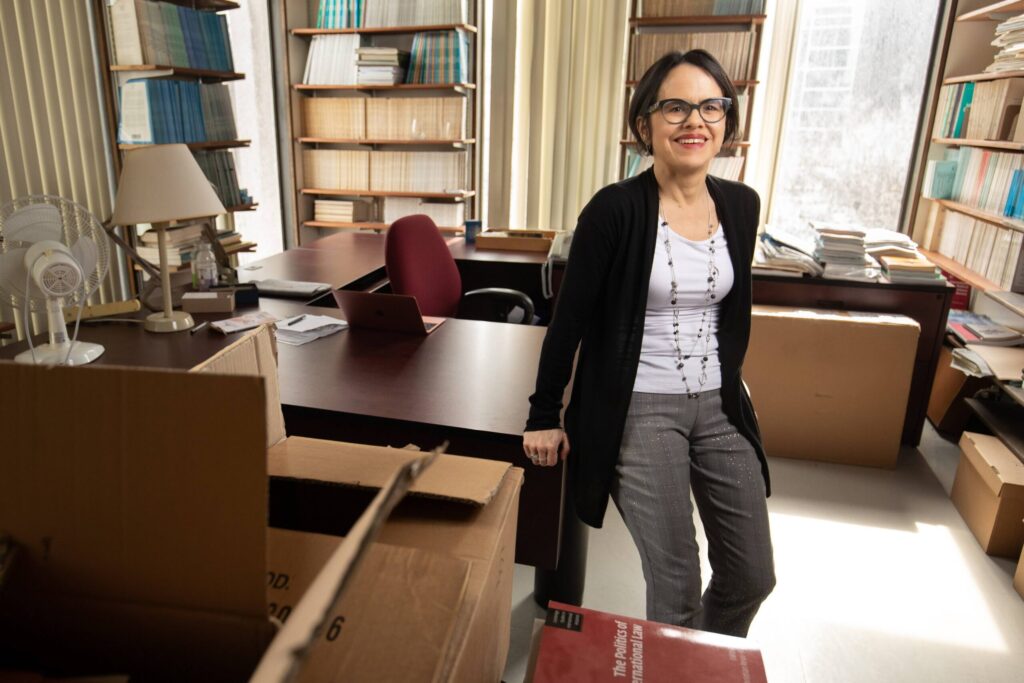
“What was really surprising was their global reach. These are people already effectively working in development in their countries, whether that be Jordan or Pakistan or Peru. They’re already thinking about policy-making,” she says. Welsh, now McGill’s Canada 150 Research Chair in Global Governance and Security, is no stranger to difficult discussions over policy matters. From 2013 to 2016, she served as special advisor to UN Secretary General Ban Ki-moon on the responsibility to protect populations from genocide, war crimes, ethnic cleansing and crimes against humanity.
Mauricio Horn, 42, is one of the Max Bell School’s first students. A professor of pedagogy and sociology of education in Argentina, he grew up during his country’s dictatorial regime and was understandably wary of the role government plays in shaping public policy.
As a result, he became an academic, taking what he saw as “an unpolluted path.” Eventually, though, he found himself working in government, developing policies for his country. Even so, he was surprised by his decision to spend his 2019 sabbatical year at the Max Bell School, pursuing a master’s degree when he already had a PhD.
“I had been trained in academia,” he explains in an email, “and had jumped later into policy-making without specific competence in the field as a practitioner…. The MPP program is a way to take my career to a higher ground.”
Charlotte Reboul, BA’17, a native of France who has lived in Montreal for the last decade, has a bachelor’s degree in international development studies, political science and management from McGill. The 23-year-old also views the MPP program as a way to reach the next level of her career. She recently started her own non-profit organization aimed at strengthening the status of young women in society.
In an email, she writes, “I’m ecstatic about… being one of Max Bell’s first MPP cohort, where I can strengthen both my academic core in public policy and my hands-on problem-solving skill.”
As Welsh points out, “It’s a diverse group of students. Many are already engaged with their communities. They already have a lot of on-the-ground experience in public policy. Now they want to think about how they can be more effective. It’s going to make for a very interesting cohort.”
The digital frontier
Like Welsh, Taylor Owen came to the Max Bell School last January to teach a core MPP course – in his case, Information and Media Literacy. According to Owen, it’s one of those rare policy issues where the gap between academia and government isn’t quite so wide. In fact, Owen was invited to make a presentation about his work to Prime Minister Justin Trudeau, BA’94, and the federal cabinet last summer.
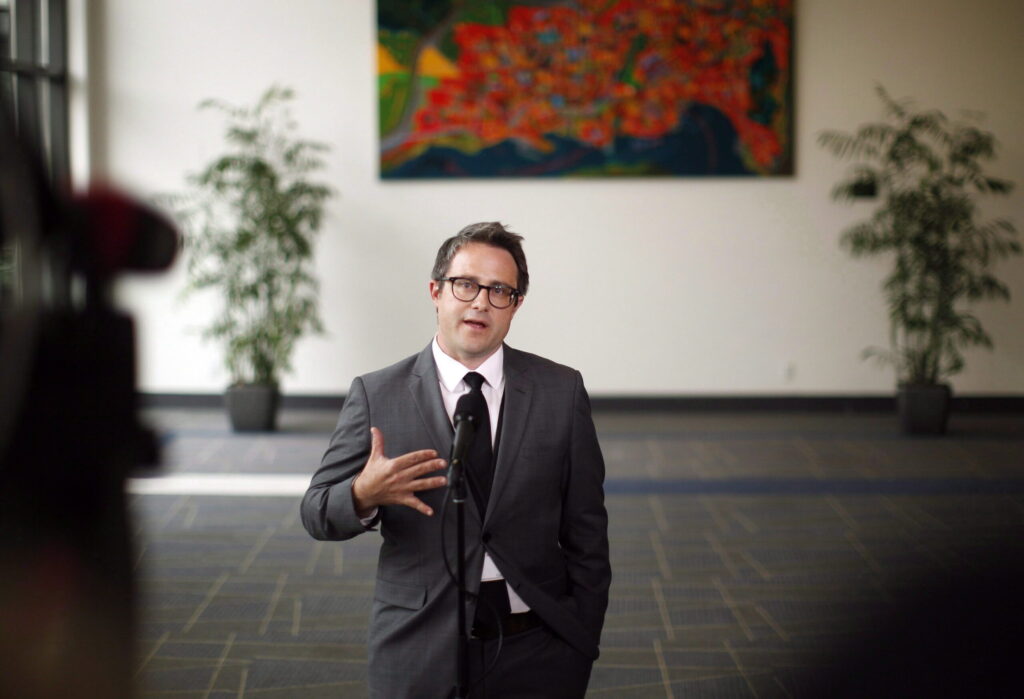
“The internet has been left ungoverned from the start and governments really need help from people outside – whether through media or activism – to navigate it. In more established policy areas, governments have decades of experience and a ton of internal capacity. But this area – whether it’s dealing with AI or how to govern Facebook and Google – is all new,” says Owen, who holds the Beaverbrook Chair in Media, Ethics and Communication at Max Bell.
Owen sees himself as a public scholar and intends to look beyond the gap between thinking about policy and making it. “That’s because the public needs to be engaged as well. The advantage of being in on the ground floor at a school like Max Bell is you can do work that isn’t isolated or esoteric. If the public doesn’t buy into a new policy conversation none of what we do is going to matter anyway.”
Owen’s plans for public outreach include a discussion of the influence of digital technology on the integrity of elections, specifically this fall’s federal election. He’s also sure of one thing:
“When a big research university like McGill starts a school like this and enters into the public policy space you know it’s going to generate momentum and excitement.”
Ragan also has lots of reasons to be excited about Max Bell’s future. A $5 million gift from Garvin Brown, BA’91, chairman of the Brown-Forman spirits company, and his wife Steffanie Diamond Brown, is being used to create the new Diamond-Brown Chair in Democratic Studies.
Ragan expects to “raise more money for more endowed chairs,” to add one person to Max Bell’s faculty every year for the next five years and to support and house new research opportunities like Welsh’s Centre for International Peace and Security Studies. Most of all, the plan is to keep the School growing.
“We’re spreading the word about Max Bell,” Ragan says, “and true to our mandate, we’re going to keep engaging in complex conversations.”
Joel Yanofsky is a Montreal-based writer and the winner of two National Magazine Awards. His work has appeared in The Walrus, Canadian Geographic, The Montreal Gazette and The Toronto Star.
